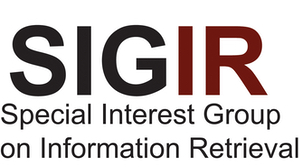Call for Resources (Data/Software)
JCDL 2025 invites submissions to a dedicated Resources Track, focused on publicly available datasets, software tools, benchmarks, and other research artifacts that advance the field of digital libraries. This track highlights the importance of open, reusable resources that contribute to transparent, reproducible, and impactful research. JCDL 2025 will be held as a fully virtual, synchronous event. Accepted papers will be included in the official proceedings. Authors are required to present their work live and provide a pre-recorded video for asynchronous viewing.
Important Dates
All deadlines are Anywhere on Earth (AoE) time:
- Submission Deadline (EXTENDED):
September 10, 2025September 19, 2025 - Notification:
October 24, 2025October 31, 2025 - Camera-Ready Deadline:
November 1, 2025November 14, 2025
Submission Site
JCDL 2025 EasyChair Submission Portal
Scope and Topics
We welcome resource submissions that facilitate new research and advance the state-of-the-art in managing, accessing, analyzing, and curating digital collections. We are particularly interested in resources that align with the multidisciplinary nature of JCDL and contribute to reproducibility, openness, and broad collaboration. Suitable submissions include, but are not limited to:
- Novel datasets, corpora, test collections, or protocols, particularly those created using innovative annotation methods, crowdsourcing strategies, or new collection pipelines
- Open-source software, tools, APIs, and libraries that support computing, analysis, evaluation, visualization, or exploration in digital libraries, information retrieval, and data science
- Benchmarks and evaluation platforms that enable reproducible and comparative studies for core tasks such as search, classification, recommendation, or metadata enrichment
- Reusable research pipelines and workflows, including those for data cleaning, integration, or transformation
- Frameworks and services that support application development in areas such as machine learning, digital preservation, document understanding, or knowledge extraction
- Cross-disciplinary resources that bridge digital libraries with fields such as computational social science, digital humanities, AI4Science, etc., enabling broader research applications and collaboration
All submissions must describe how the resource will be accessed and reused. Authors are encouraged to align their dataset submissions with the FAIR principles (Findable, Accessible, Interoperable, Reusable) [1], and where appropriate, provide structured documentation following the Datasheets for Datasets model [2].
Awards
Outstanding contributions will be considered for the Best Resource Award, which will be announced during the closing session of the conference.
Submission Guidelines
Submissions should be 2–4 pages in length, including references, and must adhere to the following guidelines:
- All submissions must follow the IEEE two-column conference template (LaTeX or Word), be written in English, and submitted in PDF format. Incomplete or abstract-only submissions will not be reviewed. References and optional appendices count toward the page limit.. Please ensure your submission adheres to the official IEEE submission policies and author guidelines. You can find the full details here: IEEE Submission Policies and Author Guidelines.
- Review Model
This track uses a single-blind review process. Author names and affiliations should be included in the submitted manuscript. Reviewers will evaluate submissions based on their technical quality, clarity, accessibility, and potential impact on the community.
- Public Availability
Submitted resources must be publicly accessible at the time of submission via a stable repository (e.g., GitHub, Zenodo, institutional repository), and must include appropriate open licensing and clear documentation. Resources must be accessible without requiring reviewers to identify themselves (e.g., no email-based access requests or restricted Google Drive links).
- Content Requirements
Submissions should describe the motivation, design, structure, intended usage, target users, and impact of the resource. A usage example or integration scenario is encouraged.
- Supplementary Materials
Authors are encouraged to include links to supplementary materials such as source code, datasets, demonstration videos, and documentation hosted on public platforms (e.g., GitHub, Zenodo). These materials should be cited appropriately in the submission. While reviewers are not required to review supplementary content, it may be used to support the evaluation of the resource.
- Ethics
If the resource involves human participants or sensitive data, submissions must include details on ethics approvals (e.g., IRB) and comply with ACM/IEEE ethical standards.
Resource Review Criteria
Submissions to the Resources Track will be evaluated based on the following criteria:
- Novelty
- Does the resource offer a significant new contribution or a substantial improvement over existing alternatives?
- Does it introduce novel data, functionality, or methodology that will benefit the community?
- Availability
- Is the resource publicly accessible and well-documented?
- Are the links working and free of login or access barriers?
- Are there discrepancies between what is described and what is available?
- Are licensing terms clearly stated and sufficiently open for academic and industry use?
- If the resource involves human-subject data, are appropriate ethics approvals documented (e.g., IRB)?
- Utility
- Is the resource clearly documented, with instructions for setup and use?
- Are usage examples, tutorials, or APIs provided?
- For datasets: Is provenance (e.g., collection, cleaning, annotation) clearly described? Are tools or scripts available for accessing and using the data?
- Impact
- What research activity is enabled by the availability of this resource?
- What research questions, applications, or communities are enabled or advanced by this resource?
- Does the resource support a growing area of interest, or open up a new one?
- Is the resource expected to remain relevant and useful over time? If maintenance or updates are needed, is there a plan?
Proceedings and Presentation
Submissions will be reviewed by the program committee members, and accepted papers will be published in JCDL 2025 Conference Proceedings, published by IEEE Conference Publishing Services (CPS), sent to IEEE Xplore for possible inclusion, and indexed by Ei Compendex and Scopus. To qualify for inclusion in the proceedings and participate in the program, authors of accepted papers must meet the following requirements:
- Each accepted paper must be covered by a distinct conference registration submitted by the registration deadline. For example, if an author has two accepted papers, two separate registrations are required, even if the author list overlaps.
- Authors must submit a pre-recorded video presentation, which may be made available for asynchronous viewing. Detailed instructions will be provided after acceptance notifications.
- Authors are required to present their work live during their scheduled session. The presentation format will be assigned by the Program Chairs based on the final program.
Generative AI Policy
All submissions must comply with the IEEE Guidelines on Use of AI-Generated Content. The use of content generated by artificial intelligence (AI) in an article (including but not limited to text, figures, images, and code) shall be disclosed in the acknowledgments section of any article submitted to an IEEE publication. The AI system used shall be identified, and specific sections of the article that use AI-generated content shall be identified and accompanied by a brief explanation regarding the level at which the AI system was used to generate the content. The use of AI systems for editing and grammar enhancement is common practice and, as such, is generally outside the intent of the above policy. In this case, disclosure as noted above is recommended.
Authorship Policy
JCDL 2025 follows the ACM Authorship Policy. Every person listed as an author must have made a substantial contribution to the research and/or the writing of the paper and must take responsibility for the entire content. The complete list of authors, including order, must be finalized by the submission deadline. No additions, removals, or reordering of authors will be allowed after submission. Corrections to spelling or affiliation may be made with approval from the Program Chairs.
Desk Rejection Policy
Submissions that fail to adhere to length or formatting requirements, or that violate academic integrity standards, such as plagiarism, author misrepresentation, or falsification, may be subject to desk rejection by the chairs. Submissions that violate ethical standards (e.g., failure to include required ethics approval statements for human-subject research) may also be desk-rejected at the discretion of the Program Chairs. Submissions that do not provide reviewers with access to the described resource at the time of submission (e.g., due to broken links, restricted access, or required reviewer identification) will be desk-rejected without review. All authors are expected to comply with the ACM Policy on Plagiarism, Misrepresentation, and Falsification.
Ethics and Conduct
- Research Ethics: Authors are expected to comply with accepted standards for ethical research and professional integrity, including those outlined in the ACM Code of Ethics and Professional Conduct. Submissions involving human participants or sensitive data must include a statement on ethics approval (e.g., IRB or equivalent), informed consent, and any other relevant safeguards. Authors must also comply with ACM Publications Policies, including the Policy on Research Involving Human Participants and Subjects. Please ensure all authors are familiar with these policies. The Program Chairs reserve the right to reject submissions that do not adequately address ethical considerations.
- Conflict of Interest: All authors, reviewers, and committee members must adhere to the ACM Conflict of Interest Policy. Conflicts of interest must be declared during the submission and review process.
- Harassment Policy: All participants must adhere to the ACM Policy Against Harassment.
Contact
For questions about the Resources Track, please contact the Resource Track Chairs at:
- David Koop, Northern Illinois University, USA, dakoop@niu.edu
- Ismini Lourentzou, University of Illinois at Urbana-Champaign, USA, lourent2@illinois.edu
- Akhil Pandey Akella, Northwestern University, USA, akhilpandey.akella@kellogg.northwestern.edu
References
[1] Wilkinson, M.D., et al. (2016). The FAIR Guiding Principles for scientific data management and stewardship. Scientific Data, 3, 160018.
[2] Gebru, Timnit, et al. “Datasheets for datasets.” Communications of the ACM 64.12 (2021): 86-92.



